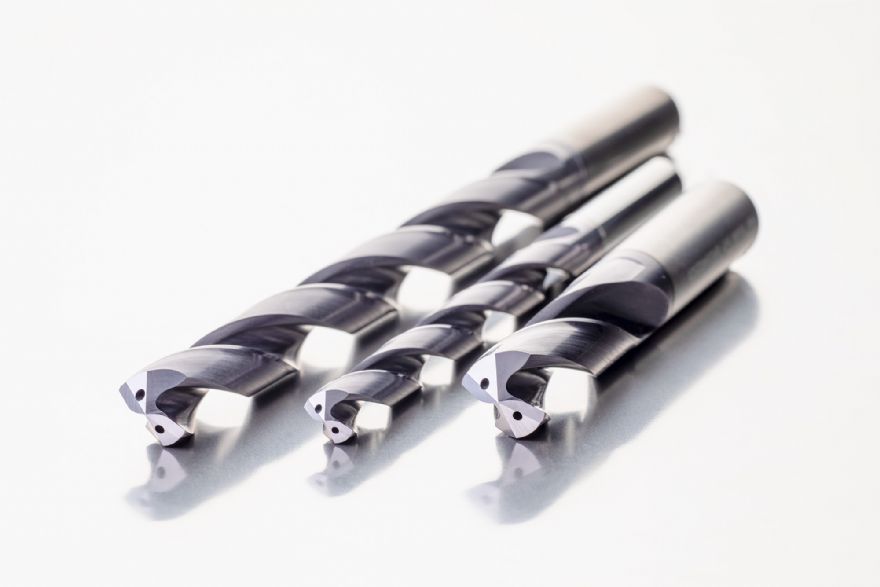 Dormer Pramet
Dormer Pramet has introduced a generation of multi-purpose solid-carbide drills with unique capabilities on to the market that have elevated economical hole-making to new heights. The uniqueness of Dormer Pramet’s Force X and Force M products, within its Dormer product brand assortment, lies in its unique flute construction with a continuously thinned web and rolled heel design, which enables better chip removal and easier resharpening. Through rigorous preparation of edges, strong outer corner design and even damage prediction, the drills improve hole quality and ensure a reliable process.
These modern drills feature a micro-grain carbide substrate and TiAlN coating. This provides high wear resistance and prolongs tool life, making the drills suitable for a wide range of machines and materials, such as stainless steel, alloyed steel or cast iron. The Dormer R100/R120 are bright finish solid-carbide entry-level self-centring drills with 120deg point-angle, for general engineering applications. The most typical industry segment for the range is general engineering, where the drills can satisfy multiple applications and materials, on everything from CNC machines to drill presses and hand applications on softer materials.
Spotting drills R122, R123 and R125 provide an accurate hole location, helping to avoid drill deflection. Spot drilling is a recommended operation prior to deep hole drilling. Spot drills typically have a tight tolerance point geometry with very short flute length.
Tom Berrill, Dormer Pramet’s field manager, said: “The R100 and R120 are perfect for those users seeking increased performance from using HSS, but don’t have the necessary budget to go for a premium high-performance drill. The Force X series offers the perfect blend between performance and functionality, being a cross material drill it is well suited to subcontract general engineering machine shops.”
Dormer Pramet´s R&D supervisor Luiz Junior said: “The R100/R120 drills are our ‘4x4 vehicle’. No matter how you apply this solid-carbide tool, you will have the versatility of a conventional HSS drill, with heightened performance. If you want speed and precision in your life, then the Force series is your go-to solution. Like racing cars, they are built to extract the most of your resources to help you decrease cycle times and increase productivity.”
Diverse componentsGeneral engineering covers a wide spectrum of machining applications. Customers often gravitate towards standard tools with high flexibility and versatility, suitable for a variety of materials. They expect a highly reliable, quick and accessible solution. The Force X and Force M drills meet these criteria. Customers usually include second and third tier sub-contractors with various CNC machining capabilities. Many of these companies work with diverse components for the design, engineering and construction sector.
The drills R100/R120 and spot drills R122/R123/R125 are most frequently used by customers in maintenance, repair and operations (MRO), which represents an enormous number of varied applications across the engineering segment. An important component of MRO is keeping equipment, assembly lines or machinery in working condition for sectors such as aviation, automotive, power engineering, food and the construction industry. MRO applications cover holemaking, threading, milling, reaming, countersinking and deburring. The R100/R120 products present a reliable and optimal solution.
David Risk, global product manager at Dormer Pramet, added: “The R100/R120 are entry-level general-purpose solid carbide drills offering excellent tool life with consistently reliable performance. They’re used in both bench drilling and CNC machine applications, mainly for general engineering and maintenance, and are the logical choice for small batch production in all industry segments.”
He concluded: “The Force X and Force M series on the other hand, are high performance coated solid carbide drills, with or without internal coolant, and offering very low cycle times. They’re the perfect choice for large-batch, high-volume production in CNC applications, and are mainly used in the general engineering, airframe assembly and die and mould industries.”